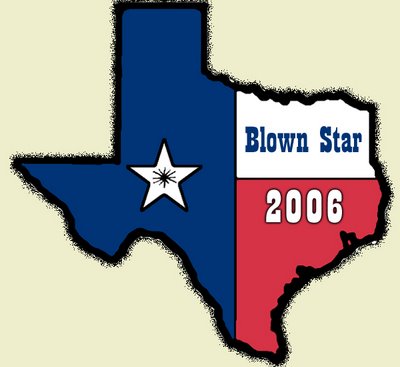Also known as Mardi Gras around these parts.
In Christian tradition, Mardi Gras is the last day before the 40-day Lenten season kicks off with Ash Wednesday. In the days when rich foods were forbidden during Lent - stuff like eggs, butter, and meat - Mardi Gras was the Last Big Hurrah for serious protein meals. Carnivals - literally, “Goodbye, Meat” were a popular feature of the day...and still are in some places. New Orleans and Rio de Janeiro spring immediately to mind.
This year, thanks to Easter falling early in the civil calendar, Mardi Gras is also early. Easter arrives on March 23 this year, at least, as celebrated by adherents to Western Christianity. (Eastern Christians will wait until April 27: five weeks later.) That’s the second-earliest possible date for the holiday, and Easter will not fall this early again until 2160.
Easter, a Moveable Feast (one not tied to the civil calendar) owes its peculiar timing to (who else?) the Jews. For the last days of Jesus coincided with the beginning of Passover, the Jewish spring festival. Originally, Easter was celebrated on the 14th day of the Jewish month Nisan, the eve of Passover, and Jesus’s redemptive death on the cross eventually came to be viewed as corresponding to the sacrifice of the Paschal lamb in Biblical times. “Paschal” derives from the Hebrew word Pesach (Passover), and most of the names for Easter reflect this origin (Pascha, Pâques, Paskha, Paaske, Pasen, Pääsiäinen, Paskah, Cáisc, Pasqua, Paisken, Påske, Páscoa, Pasti, Càisg, Påsk, Pasg, Pascua, e.g.)
But as the Church diverged from its Jewish origins and came to be dominated by Gentiles, there arose a desire to always celebrate Easter on a Sunday; moreover, there was a growing sentiment to sever the old ties between Easter and Passover. And thus, the Council of Nicaea came up with the current rule, which goes approximately like this: Easter falls on the Sunday after the first full moon that falls on or after March 21. (Since the Eastern churches follow the Julian, rather than the Gregorian, calendar, their calculations often give a different result.)
Most of the time, Easter and Passover fall close together, but not always. This year, Easter is unusually early...but Passover begins almost a month later, owing to this being a Jewish Leap Year in which an entire extra month is added. It’s a necessity when trying to keep seasonal observances from floating around the calendar.
This year’s early Easter brings with it its own set of problems. Because Saint Patrick’s Day (March 17) falls during Holy Week - the week preceding Easter - this year, ecclesiastical authorities in places like Boston and Savannah will have to decide whether to allow the popular celebrational excesses of Saint Patty’s Day to take place during what should be a semi-penitiential period...or move it up a few days in order to avoid the issue.
My money is on an early Saint Patty’s Day.
Happy Fat Tuesday to all my Christian friends. Eat, drink, and be merry...for tomorrow begins Lent.
In Christian tradition, Mardi Gras is the last day before the 40-day Lenten season kicks off with Ash Wednesday. In the days when rich foods were forbidden during Lent - stuff like eggs, butter, and meat - Mardi Gras was the Last Big Hurrah for serious protein meals. Carnivals - literally, “Goodbye, Meat” were a popular feature of the day...and still are in some places. New Orleans and Rio de Janeiro spring immediately to mind.
This year, thanks to Easter falling early in the civil calendar, Mardi Gras is also early. Easter arrives on March 23 this year, at least, as celebrated by adherents to Western Christianity. (Eastern Christians will wait until April 27: five weeks later.) That’s the second-earliest possible date for the holiday, and Easter will not fall this early again until 2160.
Easter, a Moveable Feast (one not tied to the civil calendar) owes its peculiar timing to (who else?) the Jews. For the last days of Jesus coincided with the beginning of Passover, the Jewish spring festival. Originally, Easter was celebrated on the 14th day of the Jewish month Nisan, the eve of Passover, and Jesus’s redemptive death on the cross eventually came to be viewed as corresponding to the sacrifice of the Paschal lamb in Biblical times. “Paschal” derives from the Hebrew word Pesach (Passover), and most of the names for Easter reflect this origin (Pascha, Pâques, Paskha, Paaske, Pasen, Pääsiäinen, Paskah, Cáisc, Pasqua, Paisken, Påske, Páscoa, Pasti, Càisg, Påsk, Pasg, Pascua, e.g.)
But as the Church diverged from its Jewish origins and came to be dominated by Gentiles, there arose a desire to always celebrate Easter on a Sunday; moreover, there was a growing sentiment to sever the old ties between Easter and Passover. And thus, the Council of Nicaea came up with the current rule, which goes approximately like this: Easter falls on the Sunday after the first full moon that falls on or after March 21. (Since the Eastern churches follow the Julian, rather than the Gregorian, calendar, their calculations often give a different result.)
Most of the time, Easter and Passover fall close together, but not always. This year, Easter is unusually early...but Passover begins almost a month later, owing to this being a Jewish Leap Year in which an entire extra month is added. It’s a necessity when trying to keep seasonal observances from floating around the calendar.
This year’s early Easter brings with it its own set of problems. Because Saint Patrick’s Day (March 17) falls during Holy Week - the week preceding Easter - this year, ecclesiastical authorities in places like Boston and Savannah will have to decide whether to allow the popular celebrational excesses of Saint Patty’s Day to take place during what should be a semi-penitiential period...or move it up a few days in order to avoid the issue.
My money is on an early Saint Patty’s Day.
Happy Fat Tuesday to all my Christian friends. Eat, drink, and be merry...for tomorrow begins Lent.




















No comments:
Post a Comment